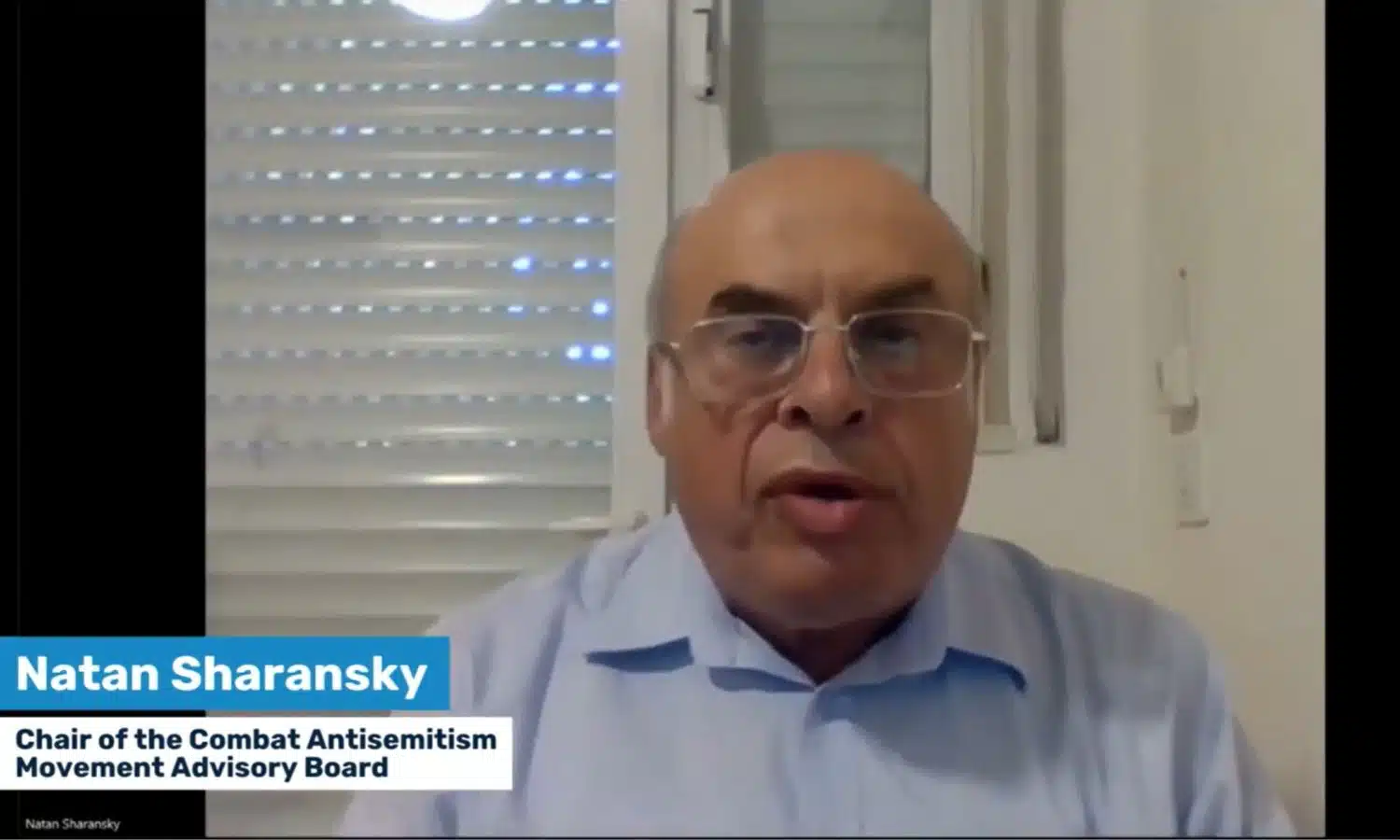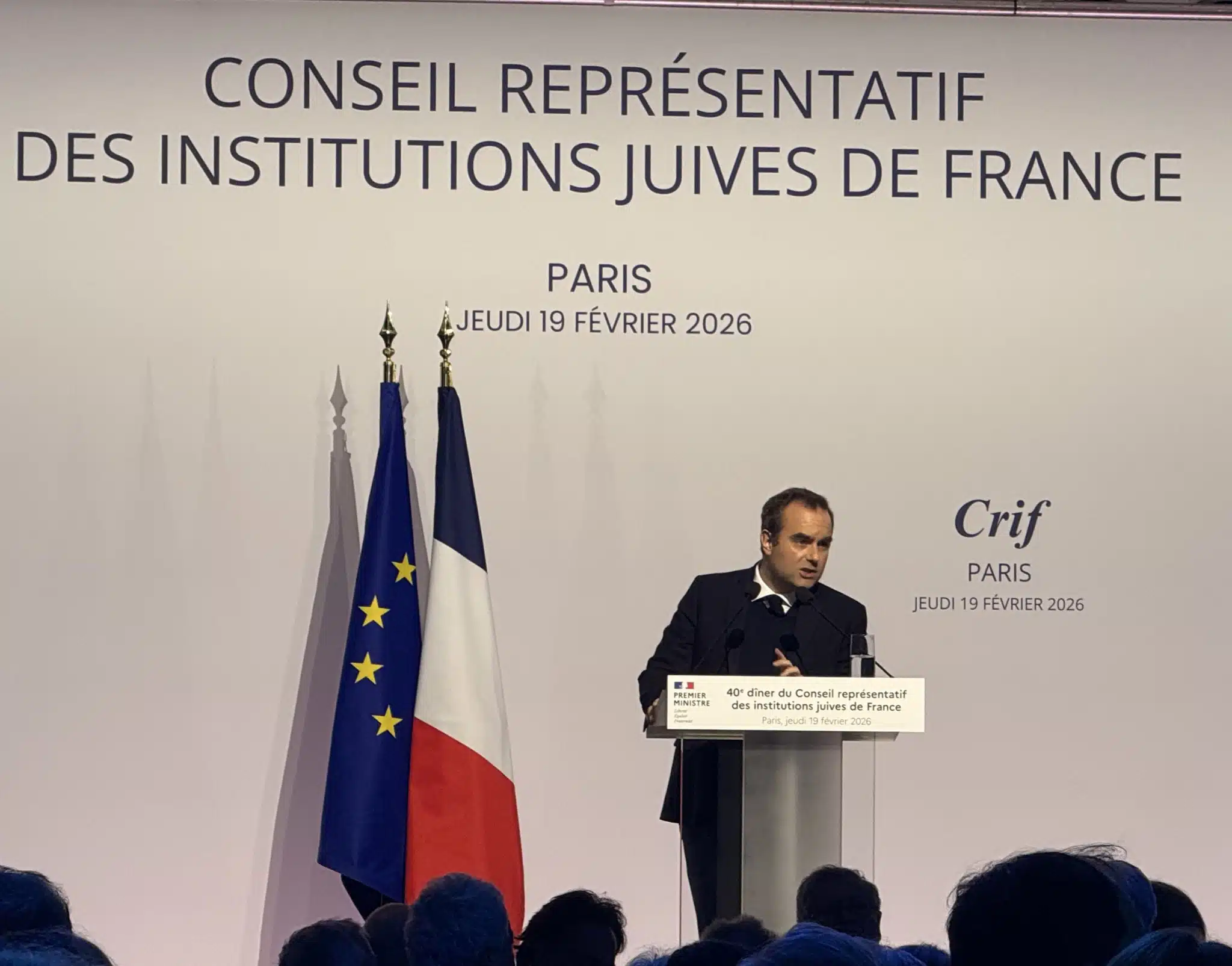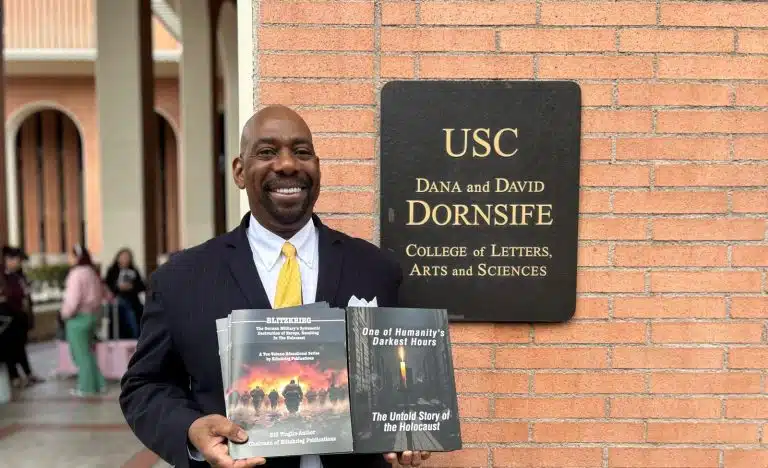Human rights icon Natan Sharansky urged the Biden administration on Thursday to rely exclusively on the International Holocaust Remembrance Alliance (IHRA) Working Definition of Antisemitism as it implements its new National Strategy to Counter Antisemitism.
Speaking virtually at a hearing of the U.S. House of Representatives Committee on Foreign Affairs Subcommittee on Global Health, Global Human Rights and International Organizations, Sharansky, chair of the Combat Antisemitism Movement (CAM) Advisory Board, praised the White House’s strategy, released last month, as a “very comprehensive plan.”
However, he noted, there was one part of the strategy that caused some “confusion” among the Jewish community. While the plan underscored the American embrace of the International Holocaust Remembrance Alliance (IHRA) Working Definition of Antisemitism, it also praised the Nexus Document and “other such efforts” as “valuable tools to raise awareness and increase understanding of antisemitism.”
Recalling his own personal experiences with antisemitism as a young man in the Soviet Union, Sharansky emphasized the vital need to identify anti-Zionism as a contemporary manifestation of Jew-hatred, and pointed out, “The IHRA definition is the only one which really connects the old antisemitism attacking Jews and the new antisemitism attacking the State of Israel.”
Sharansky reiterated the “three Ds” test of antisemitism he formulated two decades ago following the infamous 2001 UN World Conference Against Racism in Durban, South Africa.
“When there is clear demonization, double standards, and delegitimization against the Jewish state, it should be treated as antisemitism,” Sharansky implored. “And when you accept this, you understand why the treatment of Israel by the Human Rights Committee of the UN is antisemitic, why the BDS movement, which singles out Israel, is antisemitic, why denial of the Jewish people of the right to have their own state is antisemitic, and why demonization of Israel as some sort of demonic or neo-Nazi force is antisemitic.”
He went on to say, “In my travels over the past 20 years, I have visited about 100 universities and I have seen very clearly how uncomfortable Jewish students, especially Zionist students, feel because of this new antisemitism. Now in America, antisemitism is on the rise on both sides, and you can’t really deal with this phenomenon by recognizing only part of it. We really must have one definition to deal with it. And this is why the IHRA definition is so important.”
Watch Sharansky’s full testimony here:
The hearing at which Sharansky spoke was convened on the topic of “Responding to Antisemitism and Anti-Israel Bias in the UN, Palestinian Authority, and NGO Community.”
Other participants included NGO Monitor Director of Research Yona Schiffmiller, Palestinian Media Watch Founder and Director Itamar Marcus, Kohelet Policy Forum Director of International Law Department Eugene Kontorovich, United Nations Watch Executive Director Hillel Neuer, Director of the Anti-Defamation League National Board of Directors Dr. Sharon Nazarian, and The Atlantic Staff Writer Yair Rosenberg.
The Subcommittee on Global Health, Global Human Rights and International Organizations is chaired by Representative Chris Smith, a Republican from New Jersey, and its ranking Democratic member is Representative Susan Wild of Pennsylvania.












